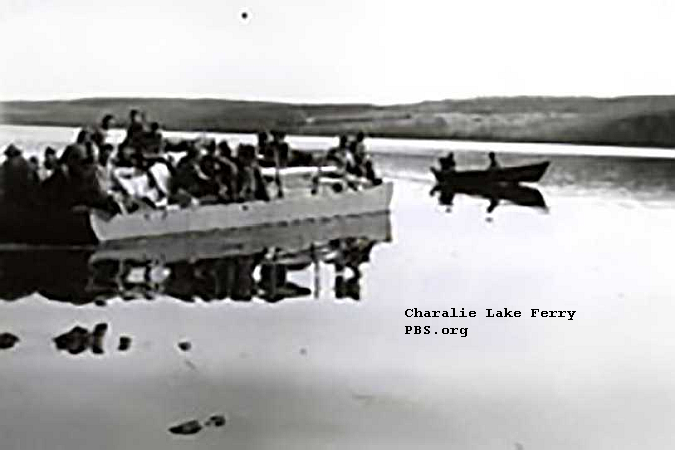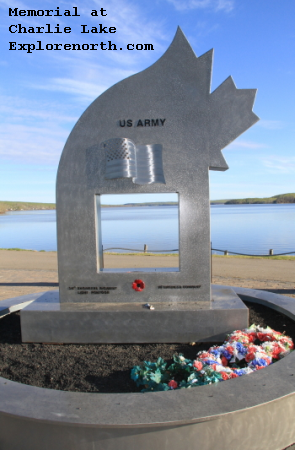
North country lessons sometimes came to the Corps the hard way. In May the North Country taught the Corps that what they didn’t know posed difficult problems. What they didn’t know they didn’t know could lead to catastrophe.
Link to another story “Muskeg Flats”
On April 31 the 341st had been together less than two months. But with the 35th, in Fort Nelson, sick and running out of food, General O’Conner needed a supply road to them—yesterday! The Corps had brought the 341st to Canada to provide that road, and, for better or for worse, the under equipped and inexperienced regiment had to get it done.
The Regiment made its way a few miles up the Highway to the foot of Charlie Lake, just outside of Fort St. John, and put their small allotment of D-4 dozers and trucks out on the road—counting on, on the job training to bring their operators and drivers up to speed. In a letter to his wife, Commander Lane noted that ribbon clerks and office workers from Brooklyn and Jersey City didn’t bring a lot of useful background to the job of operating heavy equipment.

Lane put his men in the woods with hand tools, cutting a wide swath and burning the downed trees and brush on top of the right of way. North country lesson one? Removing the insulating vegetation and then applying heat, turned what had appeared to be ‘ground’ into a sea of bottomless mud.
Lane sought a different solution and thought he found one in Charlie Lake. The placid little lake ran 12 miles in the right direction—a perfect bypass around the mud.
Lane moved his second battalion to the upper end of the lake; would use the lake to bring their equipment up and start them working north from there. The 74th Pontoon Company built Lane a broad, flat raft, equipped with several 22 horsepower outboard motors, riding on three pontoons. On May 14, loaded with a radio car, a small angle dozer, two officers and fifteen enlisted men, the ungainly craft motored out onto the lake and headed north.
But storms occasionally visited Charlie Lake and churned the placid mill pond into raging surf, and one chose to visit on May 14th. Two hours out, just a couple of miles from their destination, the violent combination of wind and waves capsized the raft and pitched its passengers and cargo into the icy water. Despite heroic efforts led by a local trapper named Gus Harden, twelve soldiers drowned.

In a sad denouement, Lane, eating breakfast at Mrs. Hunter’s restaurant a few days after the accident, overheard Rene Dhenin, a local surveyor and guide, talking with his friends about the drowning. Had they asked, virtually any local resident could have shown the soldiers a route around the ten miles of mud—and around the lake.